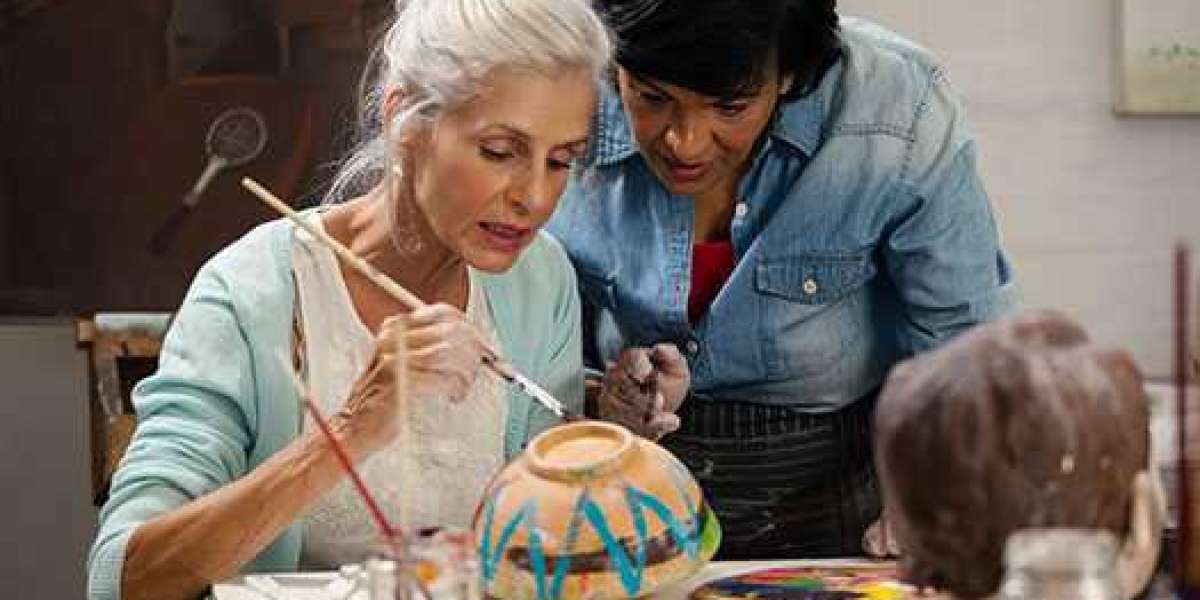Older adults who have restricted mobility can still participate in a number of activities.
Many older persons experience decreased mobility as a result of diseases such as stroke, severe arthritis, or injuries sustained in falls.
When this occurs, activities and hobbies that individuals used to enjoy may become too tough for them to continue.
However, the inability to move does not imply the end of good times. There are numerous methods to have fun, improve mood, and remain engaged in the environment without having to move around a lot or exert much effort.
We've compiled a list of nine fantastic activities for seniors with restricted mobility to assist you in discovering things that will interest your elderly loved one.
1. Invest some time in reading
Senior citizens can benefit much from the pastime of reading. It's a pleasant way to pass the time while still keeping the brain active.
It can also help with memory improvement, stress reduction, sleep improvement, and cognitive deterioration.
Whether your older adult prefers to read physical books, periodicals, or electronic publications, or whether they choose to listen to audiobooks, they will be able to immerse themselves in a well-told story, look at images, or learn about a fascinating new topic.
Another approach for seniors to enjoy reading while still socializing is to form a book club with their friends, which they can attend.
2. Engage in a variety of recreational activities
Hobbies are especially beneficial for older persons who have limited mobility.
Cooking, baking, birdwatching, knitting, crocheting, indoor or container gardening, playing a musical instrument, and learning a language are examples of activities that don't need a lot of movement.
This is also an excellent opportunity to learn something new – perhaps there are hobbies or interests that they have never had the opportunity to pursue previously.
Learnign is also a fantastic technique to keep the mind engaged and to avoid becoming bored.
3. Engage in regular physical activity.
There may still be exercises that your older adult can take to keep their bodies moving, even if they are not particularly mobile.
Whether they're sitting or standing, they can still reap the health and emotional advantages of exercise, especially when they do seated exercises or chair yoga routines, which are particularly beneficial.
There are additional workout routines that may be performed using a walker for stability, or that can be performed solely on the feet and ankles to minimize edema.
4. Be imaginative.
Another enjoyable approach for seniors to pass the time is to express themselves via their creativity.
Drawing, coloring, painting, and sculpting are all excellent ways to express one's imagination. Making scrapbooks, organizing family photo albums, or putting together a family recipe book are all examples of enjoyable tasks.
As an added bonus, being creative has been shown to have health advantages.
According to research, persons who are suffering chronic illness can benefit from engaging in creative activities by reducing negative emotions and increasing good ones, as well as reducing stress and anxiety and improving medical outcomes.
5. Spend time in the fresh air.
Exercising and spending some time in nature is both calming and a terrific way to improve one's mood.
Even if their limited mobility means that they can simply travel to the porch or sit next to a large window, getting some fresh air and taking in the landscape is a wonderful everyday activity for your elderly relative or friend.
6. Have a good time with pleased visitors.
Another excellent technique to engage an older adult is to invite family or friends who have babies or friendly dogs to pay them a visit.
When there are young children around, almost everyone's mood brightens. Furthermore, playing with pets is a certain way to offer joy and alleviate stress in your life.
7. Have fun with games!
Games and puzzles are a great way to pass the time and have a good time.
Numerous options are available, and the majority can be played in groups with visitors, one-on-one with a partner to spend quality time together, or even solitary. Try some traditional board games or card games, jigsaw puzzles, or crossword puzzles to keep yourself entertained.
8. Take pleasure in movies, television shows, or music.
While watching television all day, every day is not a healthy activity, watching a movie or a few of television series can be a pleasant way to spend a few hours of your day or week.
It is possible that watching television will connect with a hobby.
A documentary about a topic they're learning about, for example, might pique the attention of your older adult relative. Alternatively, programs such as the Food Network and the Travel Channel may provide ideas for new foods to attempt or new travel spots to discover.
Another excellent exercise is to allow them to listen to (or sing along to!) music that they adore.
Music has the ability to alleviate stress, anxiety, and discomfort in a variety of situations. It also has other benefits such as improving immunological function and sleep, as well as aiding in memory.
9 Become involved in philanthropic endeavors
Even if your elderly relative is unable to leave the house or is housebound, they can still contribute to the society. This is a fantastic approach to stay involved while also feeling a sense of purpose and accomplishment in one's work.
Find out if there are any initiatives that your older adult could participate in by getting in touch with local charities, hospitals, and religious organizations. This could include knitting or crocheting blankets or hats, making no-sew blankets, or assisting with the assembly of care packages.



